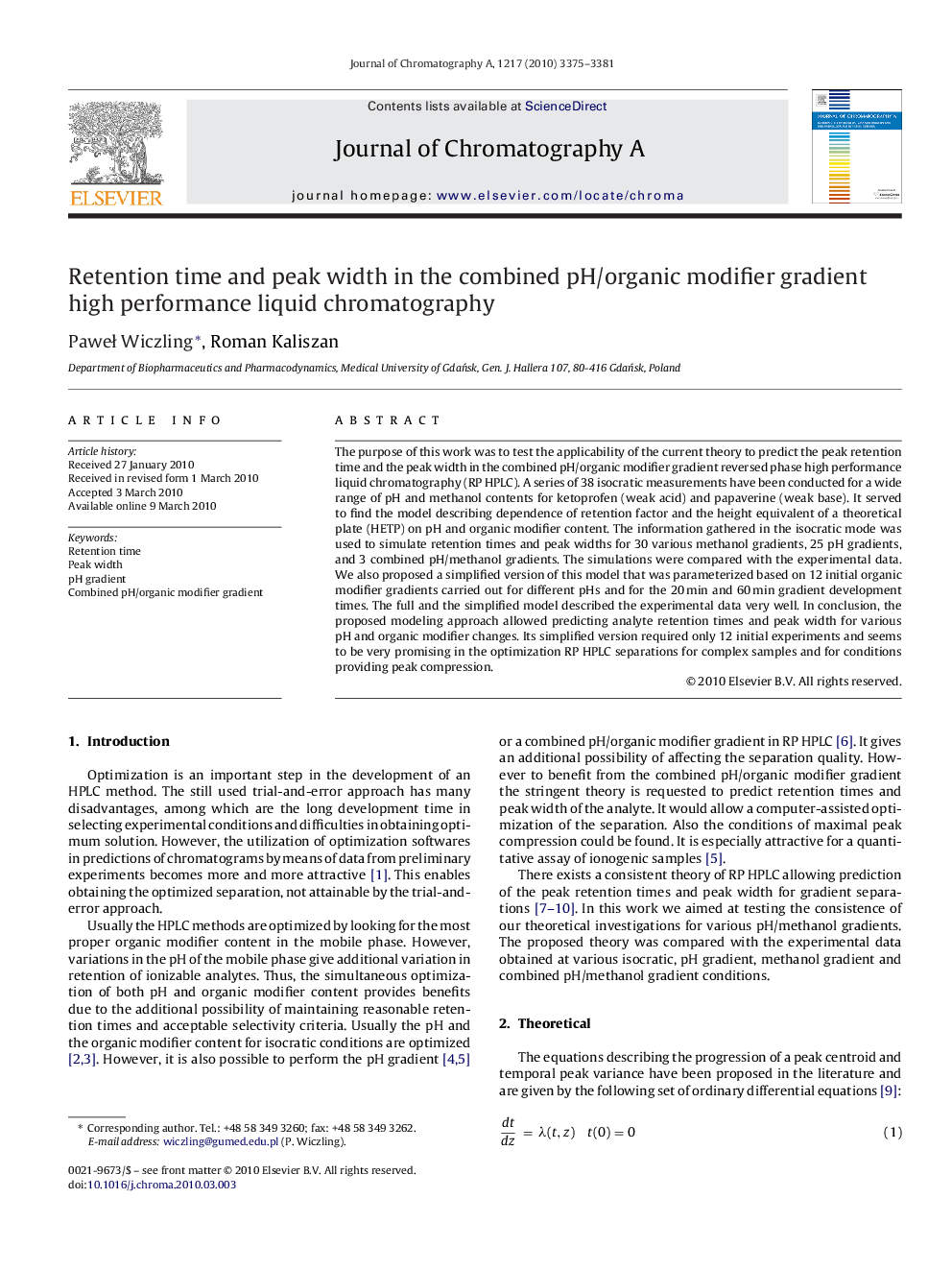| Article ID | Journal | Published Year | Pages | File Type |
|---|---|---|---|---|
| 1209285 | Journal of Chromatography A | 2010 | 7 Pages |
The purpose of this work was to test the applicability of the current theory to predict the peak retention time and the peak width in the combined pH/organic modifier gradient reversed phase high performance liquid chromatography (RP HPLC). A series of 38 isocratic measurements have been conducted for a wide range of pH and methanol contents for ketoprofen (weak acid) and papaverine (weak base). It served to find the model describing dependence of retention factor and the height equivalent of a theoretical plate (HETP) on pH and organic modifier content. The information gathered in the isocratic mode was used to simulate retention times and peak widths for 30 various methanol gradients, 25 pH gradients, and 3 combined pH/methanol gradients. The simulations were compared with the experimental data. We also proposed a simplified version of this model that was parameterized based on 12 initial organic modifier gradients carried out for different pHs and for the 20 min and 60 min gradient development times. The full and the simplified model described the experimental data very well. In conclusion, the proposed modeling approach allowed predicting analyte retention times and peak width for various pH and organic modifier changes. Its simplified version required only 12 initial experiments and seems to be very promising in the optimization RP HPLC separations for complex samples and for conditions providing peak compression.
